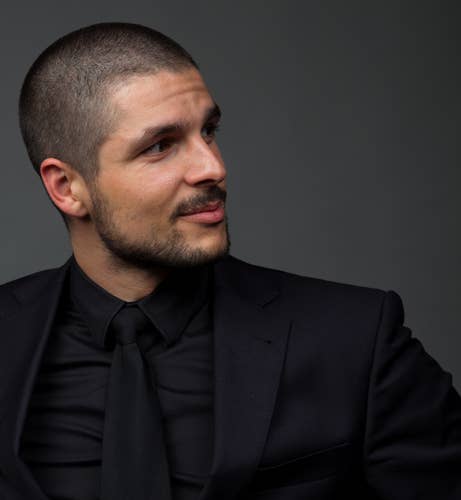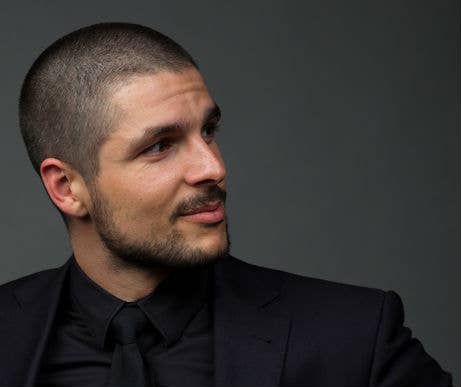Coherence: "Lowering the barrier to entry has always proved to be a game changer"
Dino Patti on joining forces with Unity co-founder David Helgason and EA DICE veteran Peter Björklund to democratise online game development
A new venture from Playdead co-founder Dino Patti and Unity co-founder David Helgason aims to democratise the creation of online games -- an area of development that has traditionally been the preserve of big companies and big budgets.
Coherence is the name of both the company and its ambitious product: a cloud-based, open-source development platform that will allow teams "of any size and experience level" to make persistent online games with real-time interactions.
Patti, who is also the co-founder of Jumpship, will be the Malmö-based company's CEO, while Helgason will take an advisory role. According to Patti, the idea for Coherence originated between him and Helgason, but they co-founded the company with the considerable technical expertise of chief technology officer Peter Björklund, the lead networking programmer on EA DICE's Frostbite Engine.
Coherence certainly doesn't lack ambition, then, but Patti is also confident that it has a team capable of delivering on those goals.
"The challenge right now is that you need a lot of technical knowledge to build anything with multiplayer in mind," he says, speaking to GamesIndustry.biz. "Especially in the early idea phase, you need to think very differently depending on what scale and features you want in your game.
"Any type of game with a massive amount of players and/or a huge map will become a realistic goal for any developer"
"Most of the time in game development -- which is a very iterative process -- you don't know where your game will really end up. We will make the process and everything around it so easy that you can come up with design ideas with no concern for network backend design and how many people potentially will play your game."
"We have a huge emphasis on accessibility, and hiding all the complicated stuff behind different layers of control."
Coherence has been built to facilitate every stage of the development process, which Patti and his team understand thanks to years of experience making games. The platform will allow for rapid prototyping at the earliest phases of production, just as it will afford more precise control when a project starts to take shape. Coherence already works with Unity, but Patti says it will have plugins for every major game engine.
With David Helgason on board, it is perhaps no surprise that Unity is the first engine to work with Coherence, but the connection to Unity also speaks to the company's larger goals. The stated aim is to "democratise" a historically complex and expensive approach to making games, which is precisely what Unity set out to do for development as a whole. And just as Unity became ubiquitous in game development, Patti wants Coherence to be a mainstay for any team building a game with online multiplayer, a persistent world, real-time interactions, or all three.

"This is exactly the dream," he says. "We want Coherence to be the first and best choice when you start out your game, maybe even before you think of any online elements."
The pitch for Coherence is impressive, but it's not entirely unique. Improbable made a lot of noise and raised a lot of money with the promise of making huge, persistent worlds accessible to smaller teams with fewer resources. Patti describes the comparison to SpatialOS as "fair," but he believes Coherence is aiming for a similar goal with a different point of view.
"Our angle is a system built from the ground up with focus on the specific needs of games and game developers," he says. "We are creating a platform that we ourselves would want to use. The developer experience and fast development cycles are paramount for us. Additionally, we understand what it takes to address the needs of latency-dependent games.
"Our CTO Peter Björklund was the main creator of the network engine in Frostbite at DICE, and we are growing a lean team focused on performance and usability."
Performance and usability will be absolutely crucial for Coherence to win favour with developers. When Bossa Studios closed Worlds Adrift (which was made using Improbable's technology) last week, it admitted that, "the challenges that came with our ambitious project meant that all our work went into making the game work rather than making it the experience we wanted it to be." The degree to which SpatialOS was a part of those difficulties isn't clear, but it is clear that making an online world and keeping one alive are very different challenges.
"The vision and scale of Coherence has made me feel that what we did at Playdead would be considered a speck of dust"
Coherence is confident that it will greatly simplify the first of those challenges, at least, and Patti believes that this will lead to a burst of innovation. The potential of the platform is not just empowering a small team to make the kind of game that once required a large team -- an MMORPG, for example -- but for a wider range of people to apply their creativity to the very concept of large groups of players interacting online.
"Essentially, any type of game with a massive amount of players and/or a huge map will become a realistic goal for any developer," he says. "I think that by giving any developer or creative person -- with or even without a coding background -- the power to make a connected experience, we will see games and experiences that we cannot imagine right now. I think this democratisation is important for progress in any field and will ultimately lead to a greater variety in audience and business models.
"Lowering the barrier to entry has always proved -- in any industry -- to be a game changer. I think MMOGs will be the first thing most people will be creating. However, I'm more interested in all the crazy unexpected ideas by solo artists and small teams. So many types of gameplay will be possible inside huge living worlds with different layers of experience, depending on whether you are playing from your phone, console, PC, or interacting through VR."
On a personal level, Patti hopes that Coherence will give rise to more games in the vein of thatgamecompany's Journey, which combined a beautifully crafted single-player experience with a restrained and powerful multiplayer component. It elicited emotions that he believes are "usually hard to achieve" in an online game.
"This ambiguous experience has really fascinated me for a long time, and I've had several ideas about this during the years. So instead of trying to make all of those, which would take a lifetime, the idea of making the fabric which enables any creative person to make this type of experience has really sparked something in me.
"I'm super proud of the games I was part of making at Playdead, and always will be... The process of making those types of games is also very slow and tiresome, which is something I've learned the hard way. In the end, I also felt that if I continued there, it would eat too much of my lifespan and yield too few results, and I felt I had so much more energy in me.
"The vision and scale of Coherence is really something that has made me feel that what we did at Playdead would be considered a speck of dust. And this thought gives me the chills."

